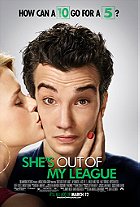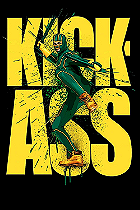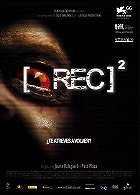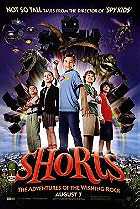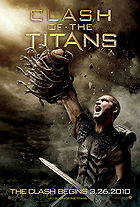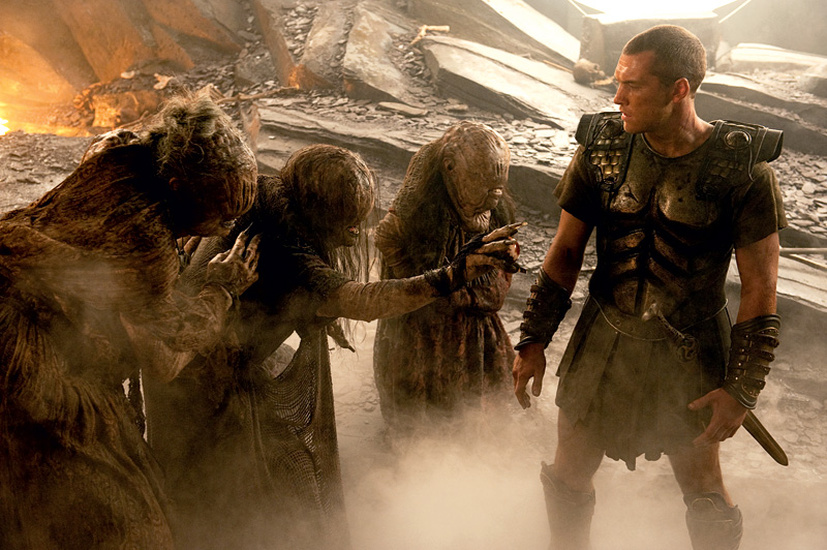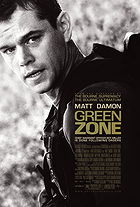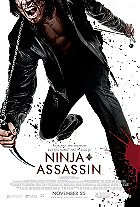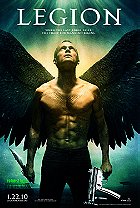With Pixar's unparalleled run of computer-animated critical and commercial hits during the latter half of the 1990s, other studios began scrambling to mimic - or at least get a share of - this success. When Shrek was released in 2001, it appeared that DreamWorks was a strong competitor for Pixar's crown in this realm, but alas, in following years, DreamWorks started being treated like a second-class citizen, and not without reason - while Pixar continued to produce animated movies which transcended the limitations of the form, DreamWorks began churning out a stream of profitable but painfully formulaic and generally lazy animated efforts like Bee Movie, Shark Tale and the Madagascar flicks. But their latest, How to Train Your Dragon, is a dramatic gear shift for the studio. This is the sort of excellent family flick that DreamWorks led us to expect would be the norm when Shrek made its debut. Technically proficient and witty, this is a rip-snorting 3-D action fable which seamlessly blends humour and heart. There are no fart jokes, pop culture references or annoying R&B songs in How to Train Your Dragon, which surely represents an artistic growth for DreamWorks. There's no mistaking this for Up or WALL-E, but it's a good-natured charmer.

Based on the first book in a popular series by Cressida Cowell, How to Train Your Dragon takes place in a fictional medieval-era village. The resident Vikings of this village are in a constant state of battle with the marauding dragons that steal their livestock. Since the entire existence of the Vikings revolves about battling dragons, the biggest, burliest men are the most prized members of the community, which puts the hero of the film - an awkward teen named Hiccup (Baruchel) - in a bit of a bind. He desperately wishes to join the grand ranks of the dragon killers, but he's small, skinny, and blessed with more brains than biceps. Regardless, during a battle he uses an invention of his to take down a Night Fury dragon, but finds himself unable to finish the job. Instead, he becomes secret friends with the dragon, whom he dubs "Toothless". As this friendship blossoms, the observant Hiccup learns that the Vikings have hopelessly misjudged the dragon species.
Written and directed by the duo of Dean DeBlois and Chris Sanders (Disney veterans whose prior collaboration was the hand-drawn Lilo & Stitch in 2003, which explains why Toothless looks a lot like Stitch), How to Train Your Dragon skilfully merges the animated medium's propensity for action, sentiment and humour. Thankfully, the humour is deployed with an elegant touch - the writer-directors never allow the story to devolve into a simple-minded parody, while at the same time they recognised the inherent comedy of the predicaments presented in the film.
The core of the picture spotlights the relationship between Toothless and Hiccup, and how they develop a lasting bond which teaches them the value of tolerance and curiosity. This relationship provides the film with its sweetness and heart. By the conclusion of the second act, the movie even treads into E.T. territory. In fact, some have praised this film as being the E.T. of this generation. While How to Train Your Dragon does not deserve such dizzyingly high praise, it's at least easy to understand the comparison.

The message of How to Train Your Dragon is simple: war and violence are usually the result of misunderstandings. Such a message is all-too-appropriate for 2010's world climate. Thankfully, the message is not hammered into the narrative, but instead flows effortlessly out of it. That said, the whole narrative is a familiar one. With Hiccup beginning as an unlikely, hopeless hero with big aspirations, the conclusion of the formulaic "zero to hero" storyline is foregone from the start. The third act story beats in particular are awfully predictable. Additionally, while How to Train Your Dragon is the cleverest and most mature DreamWorks animated movie since Shrek, it still feels like a commercial product created with more concern for the tightest running time possible. As a result, character motivations shift at the convenience of moving the plot forward, and there are contrivances which make the writing seem lazy (Toothless "sensing" that Hiccup is in trouble at one point is a prime offender).
With each passing year, the CGI in animated movies continues to approach photorealism, and the most beneficial step upwards in this respect is the improved ability to animate emotional expression. Due to the technological advances, characters can be more nuanced in expressing love and fear (among other emotions), even if said character is a dragon. How to Train Your Dragon is frankly a phenomenal visual experience, and it's blessed with several crackerjack set-pieces. The opening battle is wonderfully energetic, while the flight sequences are absolutely exhilarating. Meanwhile, the final battle sequence is a knockout - a cinematic tour de force which would be impressive in any movie, live action or animated. Since the movie takes its time to develop the characters, tension is felt whenever they're placed in peril. As a result, the climax can proudly stand alongside any CGI-heavy blockbuster, even Avatar! While discussing the visuals, it'd be best to also mention the 3-D. Unobtrusive 3-D is the most immersive 3-D, and this is the case here. It provides the screen with depth, and heightens the immersive nature of the experience.

The vocal cast features a delightful blend of actors who would probably have been cast in the same roles if this were a live-action feature. Jay Baruchel is always playing a nerd/loser (She's Out of My League, which was released about a week before How to Train Your Dragon, is a good example of this), and he's good at it. Happily, Baruchel's vocal performance as Hiccup is excellent, and he affords the character a charm which makes him easy to like. Alongside Baruchel, Gerard Butler is excellently authoritative as the village chief, while Craig Ferguson is easily likeable as a Viking who's missing a few limbs but none of his pride. The dragon-slayers-in-training are voiced by such actors as America Ferrera, Jonah Hill, Christopher Mintz-Plasse and Kristen Wiig, some of whom are Judd Apatow regulars. Even T.J. Miller lends his voice to a character, and he co-starred alongside Baruchel in She's Out of My League!
It must be noted that How to Train Your Dragon works on a different level to most other animated movies due to how exhilarating and adventure-filled the entire enterprise is. The movie falls short of achieving trademark Pixar greatness, yet it achieves a sustained note of integrity, charm and exhilaration that's rare in the family film genre. Without the proverbial DreamWorks slapstick (for the most part), the film is a triumph that encourages genuine awe and plenty of smiles while delivering high-flying splendour. Also, it sends a positive message to its target audience about the perils of fear and prejudice, which is more than what can be said for the usual DreamWorks output full of fart jokes and musical numbers. Most importantly, How to Train Your Dragon is one of those family films which adults can enjoy both with and without children.
8.4/10
 Login
Login
 Home
Home 183 Lists
183 Lists 1671 Reviews
1671 Reviews Collections
Collections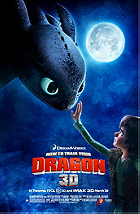
 0 comments,
0 comments, 